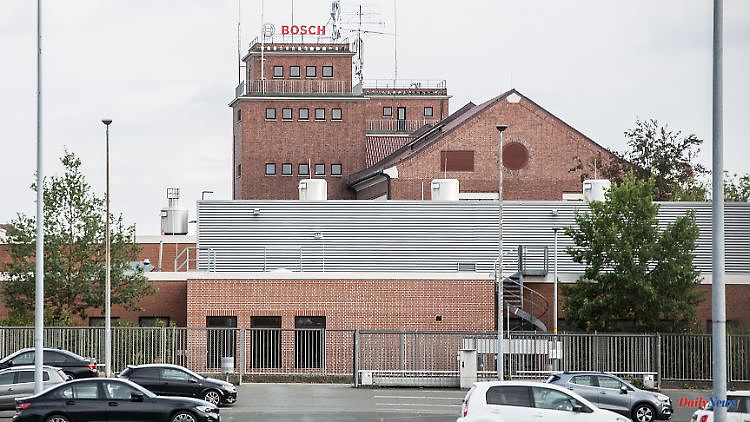The fact that cars with diesel and petrol engines will no longer be allowed to be registered from 2035 is a major concern for those working in the automotive industry. At the supplier Bosch, thousands take part in an unscheduled works meeting - and demand an agreement for the future.
At several German locations of the automotive supplier Bosch, there is rumbling among the employees about the change towards electromobility. Frank Sell, head of the general works council for the supplier division, demanded a clear commitment from management to maintain industrial jobs in Germany. According to him, 17,000 employees at nine locations in Bavaria, Baden-Württemberg, Lower Saxony, Thuringia and Saarland had previously taken part in an unscheduled works meeting.
Of the 27,000 employees affected, 70 to 80 percent were in some way dependent on the combustion engine, Sell said. It should no longer be discussed individually about each location, "but we want to have a big agreement for the future". Many companies are much further along. The works council has been talking its mouth off about the matter for years, which is why it is now being escalated.
The trigger for the action was that the management wanted to locate the production for electromobility in the Czech Republic, "without us being able to even start talking to each other". The company, on the other hand, said that Hildesheim would remain the lead plant for electromobility in Europe. A second location is to be built in Jihlava in the Czech Republic, but this will not affect any existing jobs in Germany.
Bosch labor director Filiz Albrecht showed understanding for the concerns of the employees. The management stands by the German production sites and does everything possible to "secure employment in Germany as far as possible". But she also said that Bosch needs to remain competitive and pay attention to costs. In recent years, one has seen that more and more jobs are being cut along with the demographics - this ultimately leads to the closure of individual locations, which is shown by the examples in Munich or Arnstadt, said Sell.
According to the works council, employees at the Bamberg, Blaichach, Eisenach, Feuerbach, Hildesheim, Homburg, Nuremberg, Schwieberdingen and Waiblingen locations took part in the works meeting.












